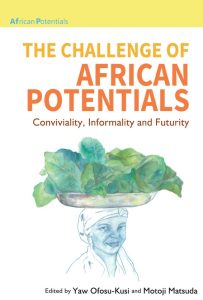Publisher: Langaa RPCIG, Cameroon
Pages: 432
Year: 2015
Category: Central Africa, History
Dimensions: 244 x 170 mm
An Historical Ethnography of Kom, Cameroon, C. 1800-2008
In this book Walter Gam Nkwi documents the complexities and nuances
embedded in African modernities and mobilities which have been
overlooked in historical discourses in Africa and Cameroon. Using an
ethnographic historical approach and drawing on the intricacies of what
it has meant to be and belong in Kom- an ethnic community in the
Northwest Region of Cameroon – since 1800, he explores the discourses
and practices of kfaang as central to any understanding of mobility and
modernity in Kom, Cameroon and Africa at large. The book unveils the
emic understanding of modernity through the history and ethnography of
kfaang and its technologies and illustrates how these terminologies were
conceived and perceived by the Kom people in their social and physical
mobilities. It documents and analyzes the historical processes involved
in bringing about and making kfaang a defining feature of everyday life
in Kom and among Kom subjects.
£50.00
About the author
Walter Gam Nkwi is an Associate Professor of History, University of Buea, Cameroon. His research interests include: Migration, Social History and relationship between Technology and Society.
Review
“A distinctive feature of Walter Nkwi’s book is in the extensive and sophisticated use of photography – digging into parish archives, private photo album, mission records, to retrieve and enhance those precious nuggets of historical knowledge. This is an immensely original way of writing history, and it works wonders. Nkwi also uses written documents found in different kinds of archives, including private ones.”
Jean-Pierre Warnier, author of Cameroon Grassfields Civilisation.
“Bringing current social science perspectives to his archival and ethnographic research on the community of Kom, Walter Nkwi covers the convergence zones of Cameroon grassfields customary practices, the apparatus of “newness” from schools and cars to text messages, the scholarship about and experiences of indigenous “belonging” and diasporic identity, and much more. His “epiphanies” revealed as conclusions to this tour de force text will become the reader’s own.”
Milton Krieger, author of Cameroon’s Contemporary Culture and Politics
“The quest to seek an African basis for the continuing relentless progress towards social change is given new language in this book by Walter Nkwi. It helps fills a gap in our knowledge of how all the pieces of modernity fit together in African society, in the context of Northwest Cameroon.”
Steve Howard, Director, Center for International Studies and African Studies Program, Professor, School of Media Arts and Studies, Ohio University

